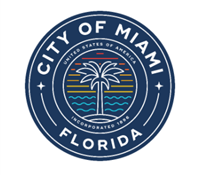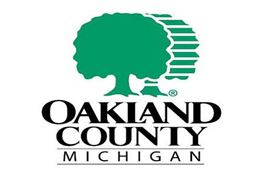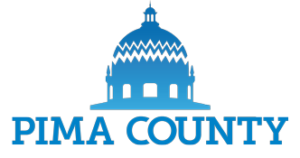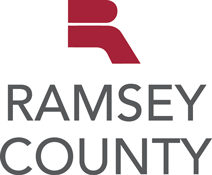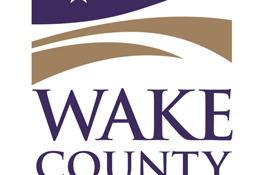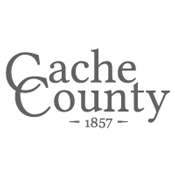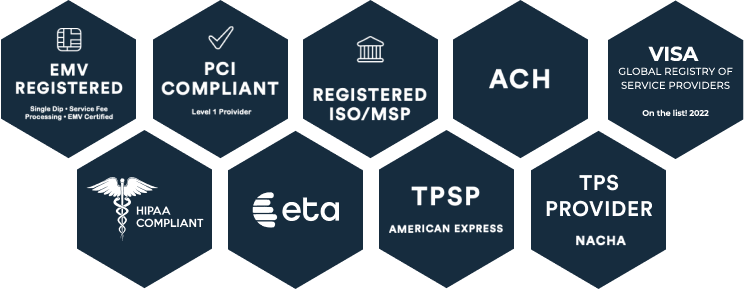Healthcare providers know that the commitment to keeping their patients’ information safe and secure is a top priority. Whether it’s medical, personal, or financial, data has been notoriously difficult to secure and protect—especially in today’s hyper-connected economy.
The Health Insurance Portability and Accountability Act (HIPAA) mandates the requirements for keeping patient data safe. Included in these requirements are guidelines on safeguarding personal health information, whether it’s in digital, paper, or oral form.
In this article, we’ll cover some of the most important questions you may have about payment processing in the healthcare industry.
What Is Considered Protected Health Information (PHI)?
A patient’s name, credit card number, and date of birth are all PHI, and as a provider, it is your responsibility to keep this information secure to the best of your capabilities.
Are Patients’ Financial Records Protected Under HIPAA?
A patient’s billing and payment info are covered under HIPAA. PHI covers personally identifiable information in a patient’s medical records. This includes general health information, including:
- Diagnoses
- Medical test results
- Treatment information
- Prescription information
Does a Payment Processing Provider Need to be HIPAA-Compliant?
To best facilitate HIPAA-compliant credit card processing, it is important to determine whether HIPAA considers a payment processing provider a business associate.
Typically, a payment processing provider is not considered a business associate. HIPAA regulations state that the financial institution simply provides normal financial services to a healthcare provider. Because the payment processor isn’t performing a HIPAA-covered action for the provider, it is not the healthcare provider’s business associate.
There is, however, an exception to this rule. If the payment processing provider also offers other services in addition to payment processing, it could be considered a business associate under HIPAA. Those additional services include reporting, medical billing, or practice management.
If the processing provider qualifies as a business associate, they will need to have a business associate agreement (BAA) with the healthcare provider to ensure safeguards are in place to protect PHI.
What Is the Healthcare Payment Processing Process?
Healthcare payment processing processes have a lot of variabilities, but all depend on two things: the source of funding and the payment method. Since most of the world uses credit cards to pay for their medical bills, we’ll focus on that as the primary funding source.

How to Process Credit Cards Safely
Since so many people rely on credit cards to make payments, it’s more important than ever to figure out how to process them safely.
There are two steps to every credit card transaction.
Step 1: Authorization
After a card is either swiped, inserted, or tapped against a secure terminal, the authorization process verifies the card and approves the transaction.
The card reader contacts the payment processor and requests payment authorization, then the payment processor contacts the card associations, which connect to the bank. The card information is then shared with the issuing bank. If the bank approves the purchase, then it is authorized.
Step 2: Settlement and Funding
After authorization, the merchant transfers the funds. The merchant uses their payment processor to send authorized transactions to a card association. The card association shares the batch information and contact the issuing banks.
When processing credit cards in the healthcare industry, there are unique challenges that come with remaining HIPAA-compliant. Beyond entering into business associate agreements with payment processors, providers must take steps to satisfy HIPAA requirements.
- Only require the information necessary to complete the transaction. Certain confidential information—like a credit card number—is clearly required, but don’t include anything related to care or treatment.
- Don’t rely on text or non-secure email to send receipts. Also, ensure that your payment provider doesn’t send any receipts this way as well.
- Use the latest encryptions in healthcare payment technology. If you’re working with unencrypted payment card data, ensure that it isn’t stored in any form, electronically or otherwise.
- Chip card technology is more secure than magnetic card readers. Make the switch to reduce fraud by 76 percent.
How to Securely Collect Healthcare Payments
There are three main ways that a patient can pay for their healthcare expenses.
1. Collect Payments In Person
In this case, you’re giving your patients the ability to pay bills at the time of service. It’s important to offer a variety of payment options, such as credit card, debit card, or cash. Payment plans add flexibility.
2. Use an Online Automated System
Opt for online payment options if you want to streamline your healthcare payment processing process. Online payments allow you to streamline the entire process.
3. Leverage an Interactive Voice Response (IVR)
Lastly, you can allow patients to make payments over the phone. Interactive voice response (IVR) is an automated phone system that allows patients to access information and make payments by phone. There’s no need to speak with anyone; the automated system gathers information based on user input.
Difficulties for Healthcare Professionals in Payment Processing
Overhauling your current payment processing system seems daunting, but doing so can help address significant challenges that need to be overcome in the healthcare industry. Outdated payment processing systems can slow down operations and leave patient records vulnerable.
Here are some obstacles you may be experiencing in healthcare payment processing:
- Lack of insight into trends. If your current system doesn’t give you adequate insight into your spending and payment trends, you could be at a disadvantage. The healthcare industry (and the world in general) is becoming more dependent on data.
- Late fees, errors, and strained relationships. Depending on paper processes can leave you susceptible to late fees. While many industries have switched to electronic payment solutions, healthcare is one field that lags. These processes are prone to errors and long processing cycles, which lead to late payments.
- High risk of fraud and weak PHI protection. Without built-in security, your systems could be leaving your organization vulnerable to fraud. Automated payment systems have built-in fraud protection, so you don’t have to worry. Data and payment encryption also guards your patient’s financial records against outside threats.
How to Choose the Right Healthcare Payment Processing Partner
Choosing the right healthcare payment processing partner can alleviate these pain points. A partner capable of cutting through the noise and streamlining the process allows you to focus on what matters: your patients.
- Look for a payment processing partner who provides the highest standard in data protection. Few industries require the stringent compliance standards that healthcare does. Find a processor who offers that benefit.
- Find an all-encompassing payment processing solution. You don’t have time for long, manual processes that add complexities. The ideal partner can offer you a cohesive, connected solution.
- Use the best that healthcare payment technology has to offer. A payment processing system that integrates seamlessly with your software is a huge feature that will save you a lot of time and resources.
Looking for a healthcare payment processing solution that checks all the boxes and keeps you HIPAA-co
Looking for a healthcare payment processing solution that checks all the boxes and keeps you HIPAA-compliant seems daunting, but luckily, we have the answer. Learn more about CORE payment solutions for healthcare providers by requesting a free demo today.




















